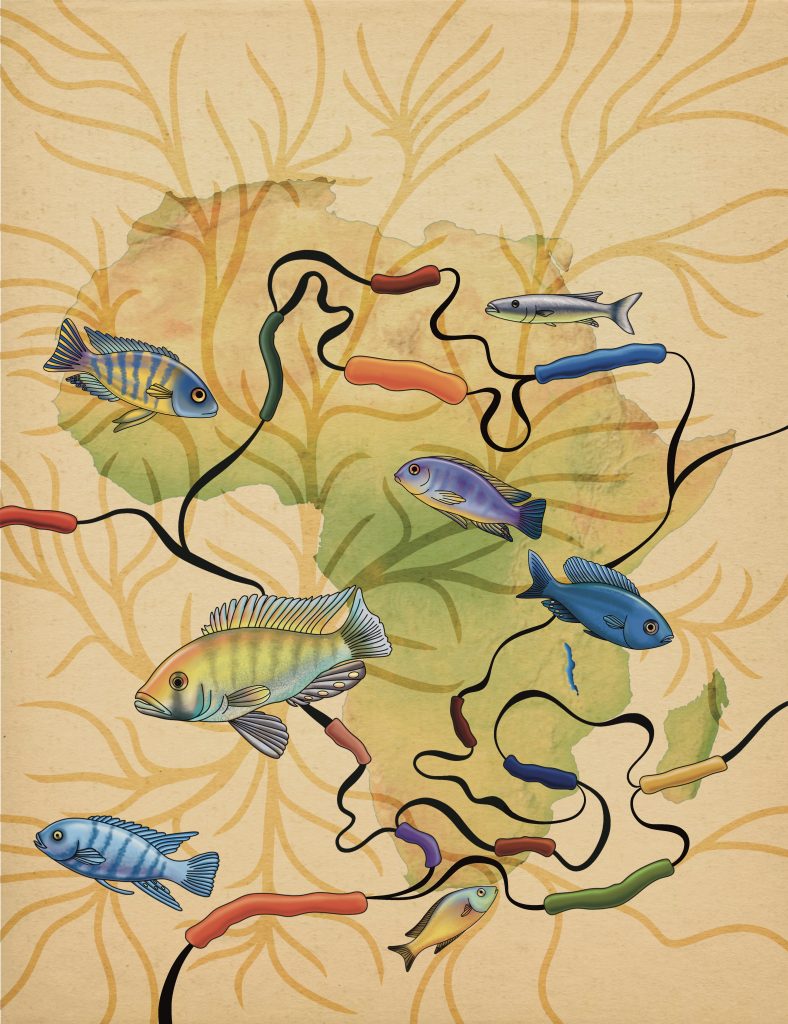Dr Fu Xiang Quah featured on the cover of Genome Research
Dr Fu Xiang Quah, who recently completed his PhD at Clare Hall, has published an article in Genome Research that was featured on the cover of the May issue.

Dr Fu Xiang Quah’s PhD research is in pangenomics, derived from Greek παν (meaning “all” or “every”), an increasingly popular approach to capture a more comprehensive view of genetic variation. He applied these methods on the freshwater cichlid fishes of East Africa, specifically those in Lake Malawi.
Cichlids represent one of nature’s most diverse and dynamic evolutionary vertebrate radiations, having evolved into hundreds of species, from rock-dwelling grazers like the mbuna to open-water predators such as the barracuda-like Rhamphochromis. Their rapid evolution mirrors how mammals and birds rapidly diversified after the extinction of the dinosaurs, making them an excellent system to understand the mechanics of evolution. Much of cichlid research has focused on single letter genetic differences, known as single-nucleotide polymorphisms (SNPs), which are minimal — only about 0.1-0.25% within Lake Malawi.

To complement these studies, Dr Quah constructed a pangenome graph using genome assemblies of several representative species. This approach manages to capture larger genetic variations, such as insertions and deletions, and reveals that between 4.73 and 9.86% of each genome consists of structural differences between species — far more diversity than SNP studies suggested. Many of these variations stem from transposable elements (TEs) — “jumping genes” that can reshuffle genetic information and reshape genomic architecture, which may underpin the success of the cichlids in diversifying to a plethora of habitats.
While pangenome graphs have been applied in humans and other species, my PhD research represents the first effort to use them to characterize large-scale genomic variation in cichlids – an important model system in understanding evolution.
-Dr Fu Xiang Quah
Dr Fu Xiang Quah is now working in bioinformatics engineering at Genomics England to realise the potential of personalised medicine in healthcare.